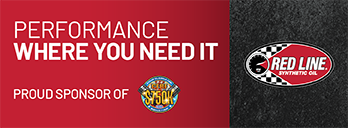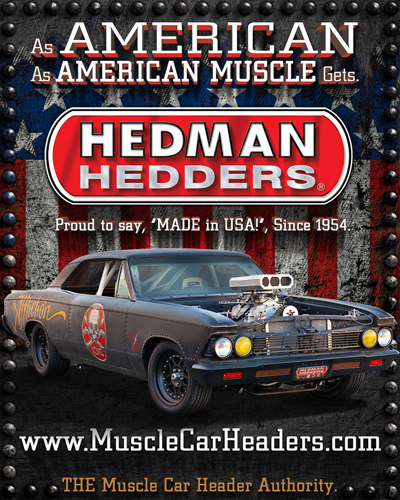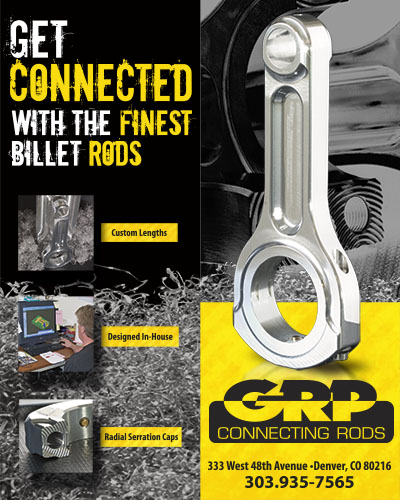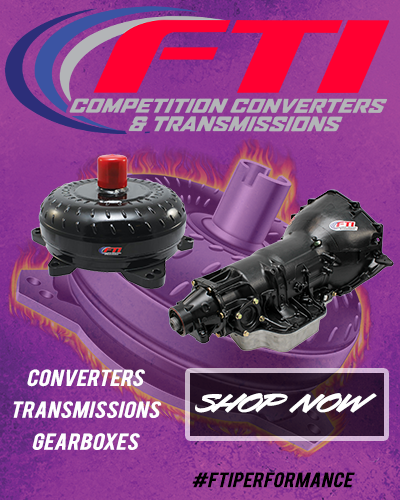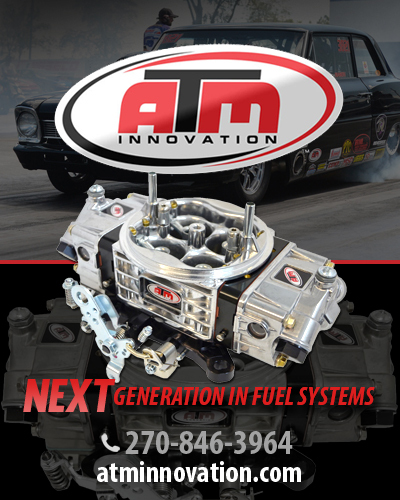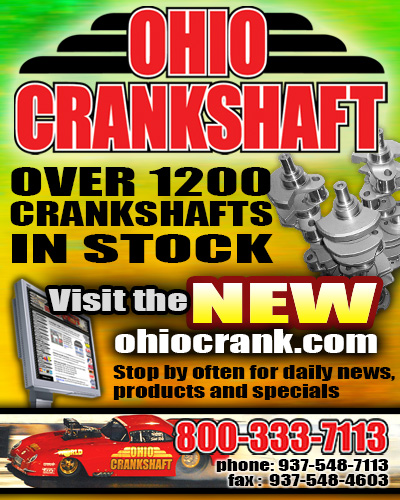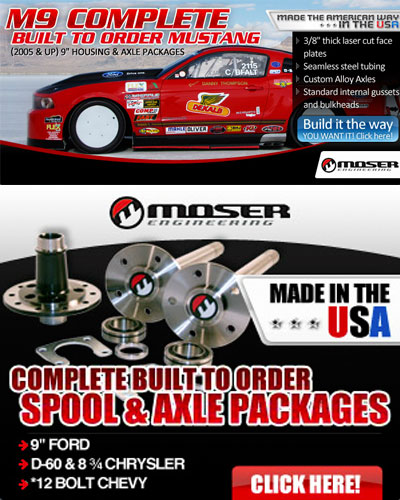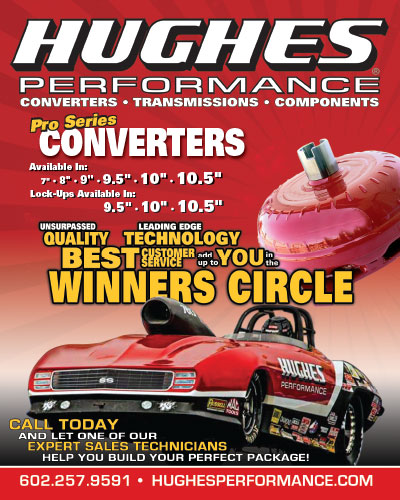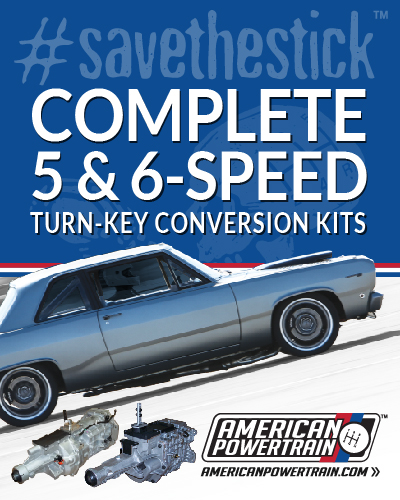DIAMOND’S TYPE 3 HARD-COAT ANODIZED PISTONS
Tue, 2009-10-13 12:03
Imagine the surreal heat and cylinder pressure generated by a Top Fuel engine on a 1000-foot 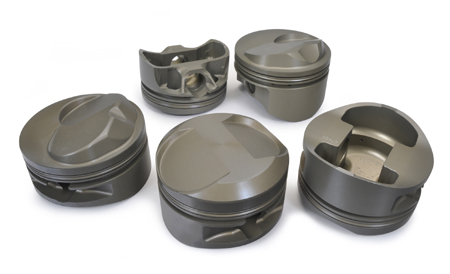 pass. Though the violence to the pistons isn’t as concentrated inside a street engine with a power adder, it is constant and just as debilitating over the long run. Diamond has the answer.
pass. Though the violence to the pistons isn’t as concentrated inside a street engine with a power adder, it is constant and just as debilitating over the long run. Diamond has the answer.
A street-driven nitrous-fed or supercharged engine needs the hard coat more than a competition engine because the combustion process expands from the few seconds of a quarter-mile run to hours of street use. Diamond hard-anodizes the entire piston and then moly-coats the skirt. The moly-coat wouldn’t be necessary in a drag race application, but it is genuine insurance for a street engine.
Piston rings exposed to high temperatures can become micro-welded to their ring grooves. The Type 3 aluminum oxide anodizing (technically a ceramic) provides a heat barrier, which insulates the piston. The hard-coating is approximately .002-inch thick. It penetrates the surface of the piston .001-inch and builds out another .001-inch, therefore machining allowances must be made to accommodate the thickness of the application. This hard-anodizing possesses a surface finish approaching 70-Rockwell hardness and protects pistons against excessive combustion heat, detonation damage, and skirt wear—an absolute necessity in nitrous and supercharged applications.
The Rockwell scale is based on the indentation hardness of a material. The Rockwell hardness test method consists of indenting the test material with a diamond cone or hardened steel ball indenter. In the scheme of things, a hardness of 70 Rockwell is somewhere in the middle of the scale.
As hard-anodizing gives the piston a protective coat that reduces wear and insulates it from heat, it also provides an excellent surface to apply Diamond’s moly skirt coating for even better performance.
The hard coat process adds a cost of approximately $35 per piston and is applied on a custom basis only. Years ago, when a set of pistons cost $240, adding a further $35 for hard-coating was often considered too costly. Instead, racers would run them uncoated and purchase another set of pistons when needed. Now, the average price of pistons has risen to $900 while the anodizing costs have remained fairly stable so it is a popular concept to spend the $300 for anodizing and be able to run the pistons twice as long. Please call Diamond for details.
For more information visit www.DiamondRacing.net
 pass. Though the violence to the pistons isn’t as concentrated inside a street engine with a power adder, it is constant and just as debilitating over the long run. Diamond has the answer.
pass. Though the violence to the pistons isn’t as concentrated inside a street engine with a power adder, it is constant and just as debilitating over the long run. Diamond has the answer.A street-driven nitrous-fed or supercharged engine needs the hard coat more than a competition engine because the combustion process expands from the few seconds of a quarter-mile run to hours of street use. Diamond hard-anodizes the entire piston and then moly-coats the skirt. The moly-coat wouldn’t be necessary in a drag race application, but it is genuine insurance for a street engine.
Piston rings exposed to high temperatures can become micro-welded to their ring grooves. The Type 3 aluminum oxide anodizing (technically a ceramic) provides a heat barrier, which insulates the piston. The hard-coating is approximately .002-inch thick. It penetrates the surface of the piston .001-inch and builds out another .001-inch, therefore machining allowances must be made to accommodate the thickness of the application. This hard-anodizing possesses a surface finish approaching 70-Rockwell hardness and protects pistons against excessive combustion heat, detonation damage, and skirt wear—an absolute necessity in nitrous and supercharged applications.
The Rockwell scale is based on the indentation hardness of a material. The Rockwell hardness test method consists of indenting the test material with a diamond cone or hardened steel ball indenter. In the scheme of things, a hardness of 70 Rockwell is somewhere in the middle of the scale.
As hard-anodizing gives the piston a protective coat that reduces wear and insulates it from heat, it also provides an excellent surface to apply Diamond’s moly skirt coating for even better performance.
The hard coat process adds a cost of approximately $35 per piston and is applied on a custom basis only. Years ago, when a set of pistons cost $240, adding a further $35 for hard-coating was often considered too costly. Instead, racers would run them uncoated and purchase another set of pistons when needed. Now, the average price of pistons has risen to $900 while the anodizing costs have remained fairly stable so it is a popular concept to spend the $300 for anodizing and be able to run the pistons twice as long. Please call Diamond for details.
For more information visit www.DiamondRacing.net
Categories:

